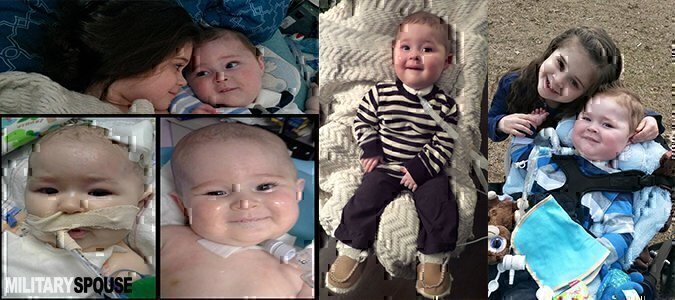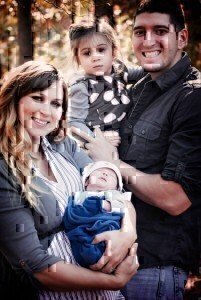When he was around 12 weeks old we went to our first physical therapy appointment. He was assessed to be 1-2 months behind on his gross motor skills. We were assured that if we continually worked with him using the positions and exercises we learned at physical therapy he would catch up and progressively meet his milestones. I continued to work with him at home but I wanted to know why my baby was like this and what I could do to better understand him so I started to do some research.
Low muscle tone is called hypotonia. Hypotonia is usually a symptom rather than a diagnosis. Hypotonia can alone be the only issue a person can have and many times the reason why can remain unknown. As I networked through Facebook with other mom’s of hypotonic children, I found a community that knew what I was going through. I told his story and was hopeful when I found that other children like him were meeting milestones. This gave me hope that eventually he would hold his head up.
However, one thing that troubled me with while on the Hypotonia Facebook group when the moms said he sounded exactly like their children who have Spinal Muscular Atrophy (SMA). I was no stranger to SMA and was sure he didn’t have it. My cousin had a very severe case of SMA type 1 and sadly passed away in 2012 at only 5 months of age. I had the pleasure of meeting and spending some time with her. I learned that SMA was a devastating disease. Thomas couldn’t possibly have what she had. We also learned that my husband’s uncle had SMA and lived to be 3 years old. But that happened more than 40 years ago, before my husband was born so we didn’t have much personal knowledge of the circumstances.
As I continued to work with him doing physical therapy I became discouraged. He showed little signs of improvement. He had however been struggling with congestion for a few weeks. I know being sick makes you tired so I assumed that that was why he wasn’t doing so well and once he’s better he would start progressing.
When he was around 14 weeks old I noticed he was really breathing with his belly rather than his chest and that his chest presents with the left side sort of dented in. It was also relevant that he was much different than his peers at the playgroup we went to. I was able to compare him and his abilities to four other babies his age. The other mothers asked how I could possibly wake up at night when he cries because his cry was very faint and soft. As the other babies were on their bellies lifting their heads, baring weight on their legs when supported, rolling over and sitting supported, he was not.









